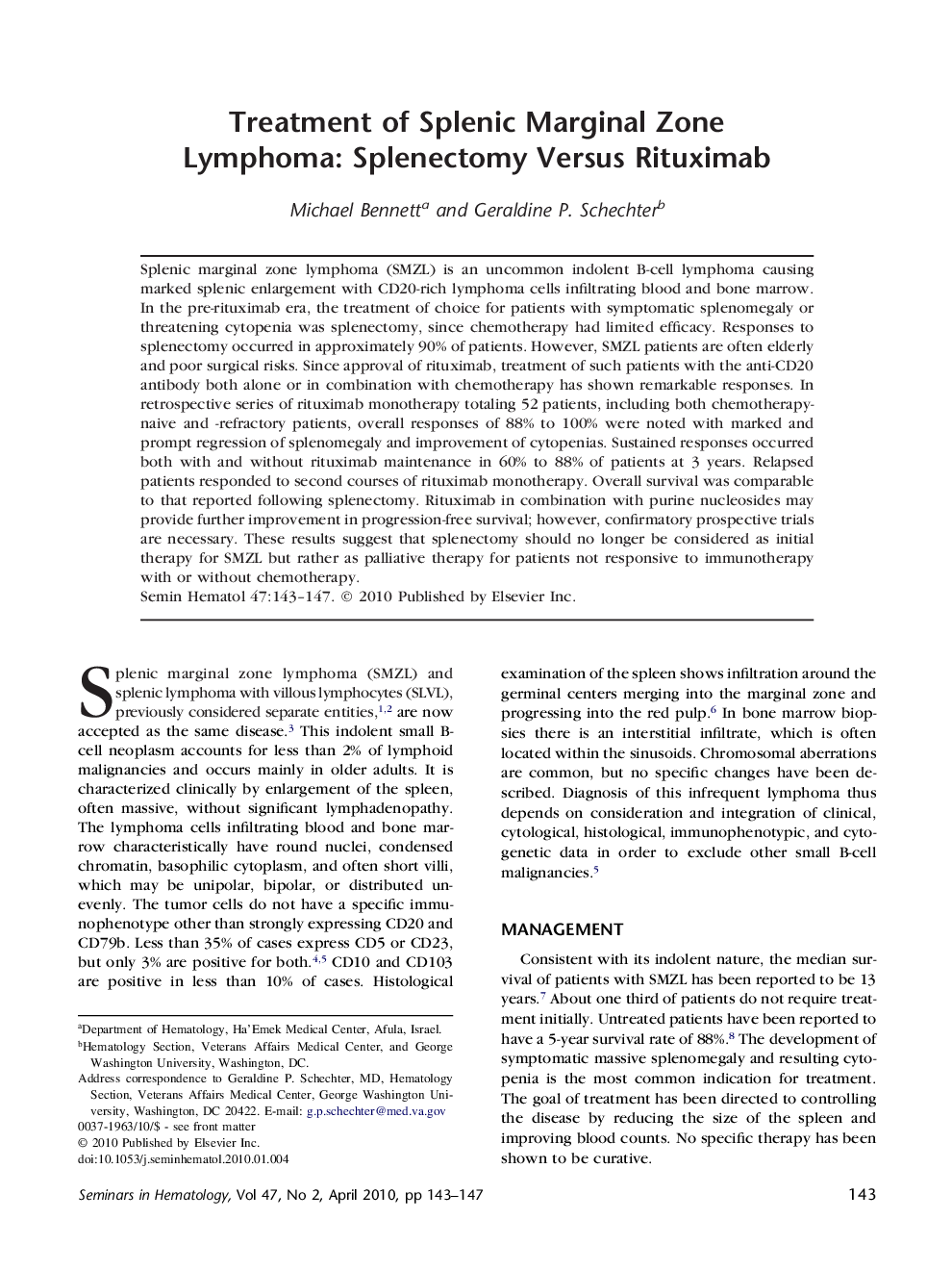| Article ID | Journal | Published Year | Pages | File Type |
|---|---|---|---|---|
| 3333673 | Seminars in Hematology | 2010 | 5 Pages |
Abstract
Splenic marginal zone lymphoma (SMZL) is an uncommon indolent B-cell lymphoma causing marked splenic enlargement with CD20-rich lymphoma cells infiltrating blood and bone marrow. In the pre-rituximab era, the treatment of choice for patients with symptomatic splenomegaly or threatening cytopenia was splenectomy, since chemotherapy had limited efficacy. Responses to splenectomy occurred in approximately 90% of patients. However, SMZL patients are often elderly and poor surgical risks. Since approval of rituximab, treatment of such patients with the anti-CD20 antibody both alone or in combination with chemotherapy has shown remarkable responses. In retrospective series of rituximab monotherapy totaling 52 patients, including both chemotherapy-naive and -refractory patients, overall responses of 88% to 100% were noted with marked and prompt regression of splenomegaly and improvement of cytopenias. Sustained responses occurred both with and without rituximab maintenance in 60% to 88% of patients at 3 years. Relapsed patients responded to second courses of rituximab monotherapy. Overall survival was comparable to that reported following splenectomy. Rituximab in combination with purine nucleosides may provide further improvement in progression-free survival; however, confirmatory prospective trials are necessary. These results suggest that splenectomy should no longer be considered as initial therapy for SMZL but rather as palliative therapy for patients not responsive to immunotherapy with or without chemotherapy.
Related Topics
Health Sciences
Medicine and Dentistry
Hematology
Authors
Michael Bennett, Geraldine P. Schechter,
